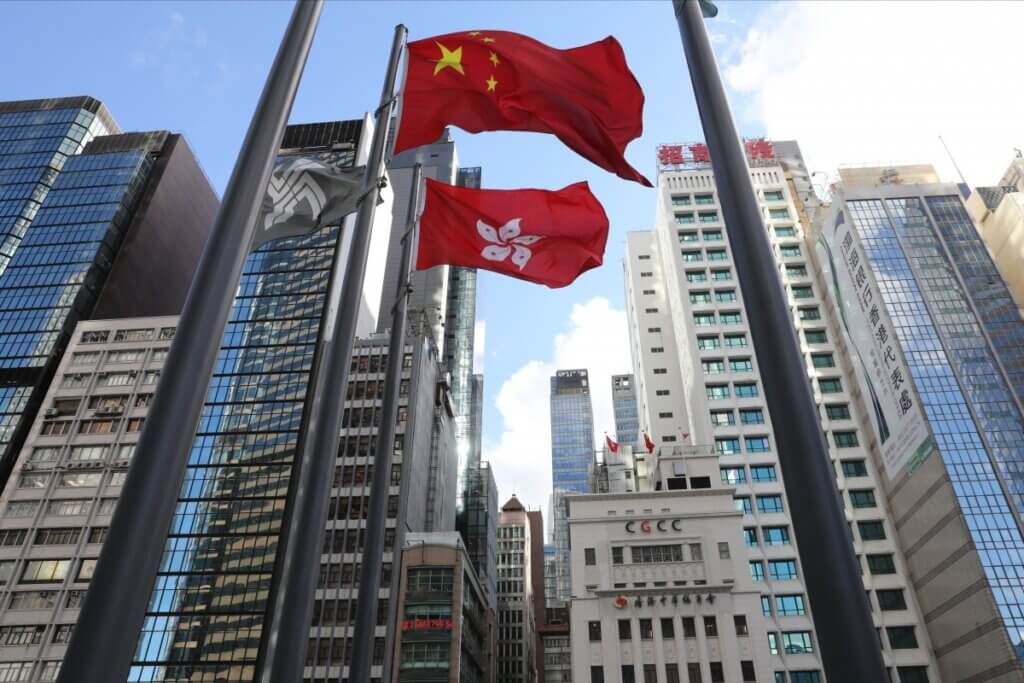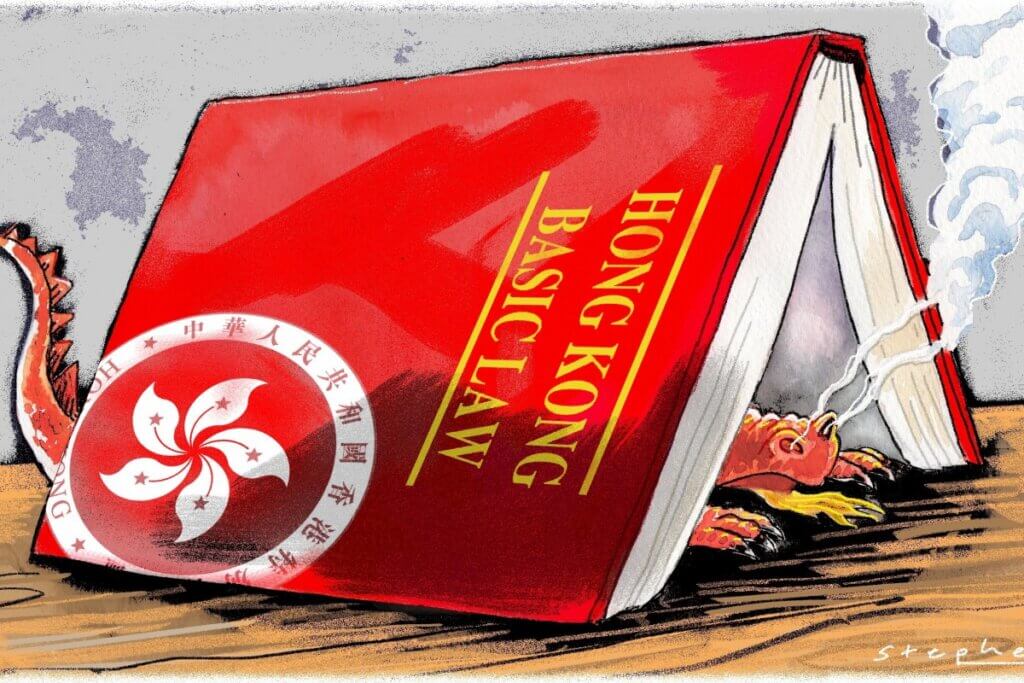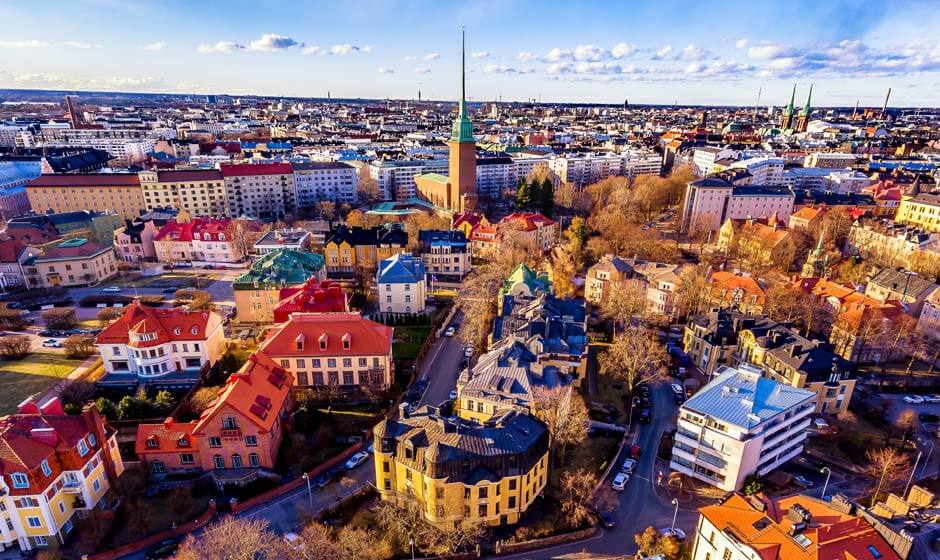New Hong Kong Chinese Law: Why to Be Afraid?
On May 28, the Chinese authorities approved the plan of the National Security Law of the special administrative region of China ‒ Hong Kong. Perhaps certain clauses will be introduced into the Hong Kong Basic Law and will be adopted during the summer.
Critics call this weird decision of the Celestial authorities a real “end for Hong Kong.” The autonomy of the region will decrease and penalties for actions that would threaten the country’s security will be tightened. We are talking about rallies, protests, terrorist acts, and other actions that may cause political instability in the state.

What is New Hong Kong Chinese Law About?
For a long time, a security law was planned in Hong Kong, but still, no one has adopted it because of its unpopularity. This refers to the possibility of China to intervene in the affairs of the city, which relates to acute political issues. This was possible only thanks to the creation of a powerful legal base, changes in the basic regulatory documents of the city.
Before the adoption of the law, details about what exactly was described in its 66 articles were inaccessible to the public…
Any committed act of the following is a criminal offense:
- Expression of desire to secede from the country;
- Organization of subversive events, including in the buildings of state power and central government;
- Terrorist attacks, intimidation of people, violence;
- Entering into a conspiracy with external entities, foreign representatives.
How Does This Law Threaten Hong Kong?
The law came into force on June 30 at 11 p.m. according to Hong Kong time. Now China has a fucking opportunity to lead the life of the city. Critics of this decision by the Chinese authorities say that now freedom of speech and protest in the region will be banned. But official China says that stability in the city will resume.
Legal clause and punishment:the maximum term of imprisonment will be set aside for terrorism, conspiracy with foreign entities, separation from the country, and undermining of power.
Also, even damage to public transport will be regarded as a manifestation of a terrorist attack. Those whose guilt is proven to be an offense will not be able to occupy important positions in the state. If companies are convicted by law, they will be fined.
Soon the Beijing authorities will organize their own security department in Hong Kong. Personal law enforcement officials will be brought there, so they won’t fall under the jurisdiction of the Hong Kong authorities.
Such offices will direct information to the mainland of China. However, Beijing has already stated that under their patronage there will be only a certain small part of the cases.
Also, the Hong Kong authorities will soon create their own national security commission. It will be supervised by an adviser appointed in Beijing. This will ensure full compliance with laws.

Official Hong Kong will have the right to appoint its judges when it comes to matters relating to the country’s security and undermining judicial independence.
Now it’s not the political and judicial representatives of Hong Kong who will monitor the correct interpretation and implementation of the law, but representatives from Beijing. So, Beijing law is always a priority over Hong Kong law if conflicts arise.
Interrogations can be heard behind closed doors. All suspected of violating the law will be tapped additionally. They will also strengthen the leadership of various foreign news agencies and non-governmental organizations.
The current law will apply both to residents of Hong Kong and to visitors and temporary residents of the city. In fact, most Hong Kong residents have not seen the full text of this law. Such secrecy has caused a lot of controversy among the public.
The authorities claim that this new Hong Kong Chinese law will help preserve the autonomy of the city and the judicial independence. The head of administration, Carrie Lam, said the law is passed only once and would not be retroactive.
However, Hong Kong residents still react negatively to innovations.
Why is Chinese Law Dangerous for Hong Kong?
Despite the statements by official China that now they will respect the rights and freedoms of Hong Kong and threats to national security will no longer be actual, most local residents are unhappy. They fear is that now part of the special administrative region of the PRC may lose their freedom of speech.
This idea is also confirmed by Professor Johannes Chan. He said that the consequences threaten not only freedom of speech but also the personal security of every citizen.
People are also worried by the fact that those who participate in rallies will not be admitted to positions in the government as well as information about people who delete posts on Facebook.
Events signal the undermining of the judicial system in Hong Kong. Previously, it was an independent and sole jurisdiction of common law throughout the country, now it will be difficult to count on its autonomy. It is starting more and more to look like the mainland.
Some democratic activists, including Joshua Wong, are trying to lobby for foreign interests, promoting their views. However, in the future activists will have to pay for such actions. This will be regarded as a crime. For these reasons, Wong quit the Demosisto party.
Another reason, that trouble Hong Kong residents, is the risk of losing their attractiveness as an economic and business center around the world due to the threat to freedoms.
What’s the Point for China?
Until 1997, Hong Kong transferred from British power to China. This was realized thanks to a special agreement, which was called the Basic Law or mini-constitution. It was based on the principle of one country and two systems.
It defended Hong Kong, its freedom of speech, judicial independence, democratic rights, which were not taken into account in other administrative units of China. Under this agreement, Hong Kong was supposed to have its own law on national security, as was stated in the article of the Basic Law. However, this was constantly delayed due to the unpopularity of the document.
In 2019, the protests against the extradition law were so global that they became violent and obviously anti-national and pro-democratic. That is what official China didn’t like. That’s why it decided to stop that situation.
The Basic Law stipulates that Chinese laws are not valid in Hong Kong if they are not in Section III, which deals with foreign policy. Such laws will come into force by decree, and this will mean that they bypass the city parliament.


